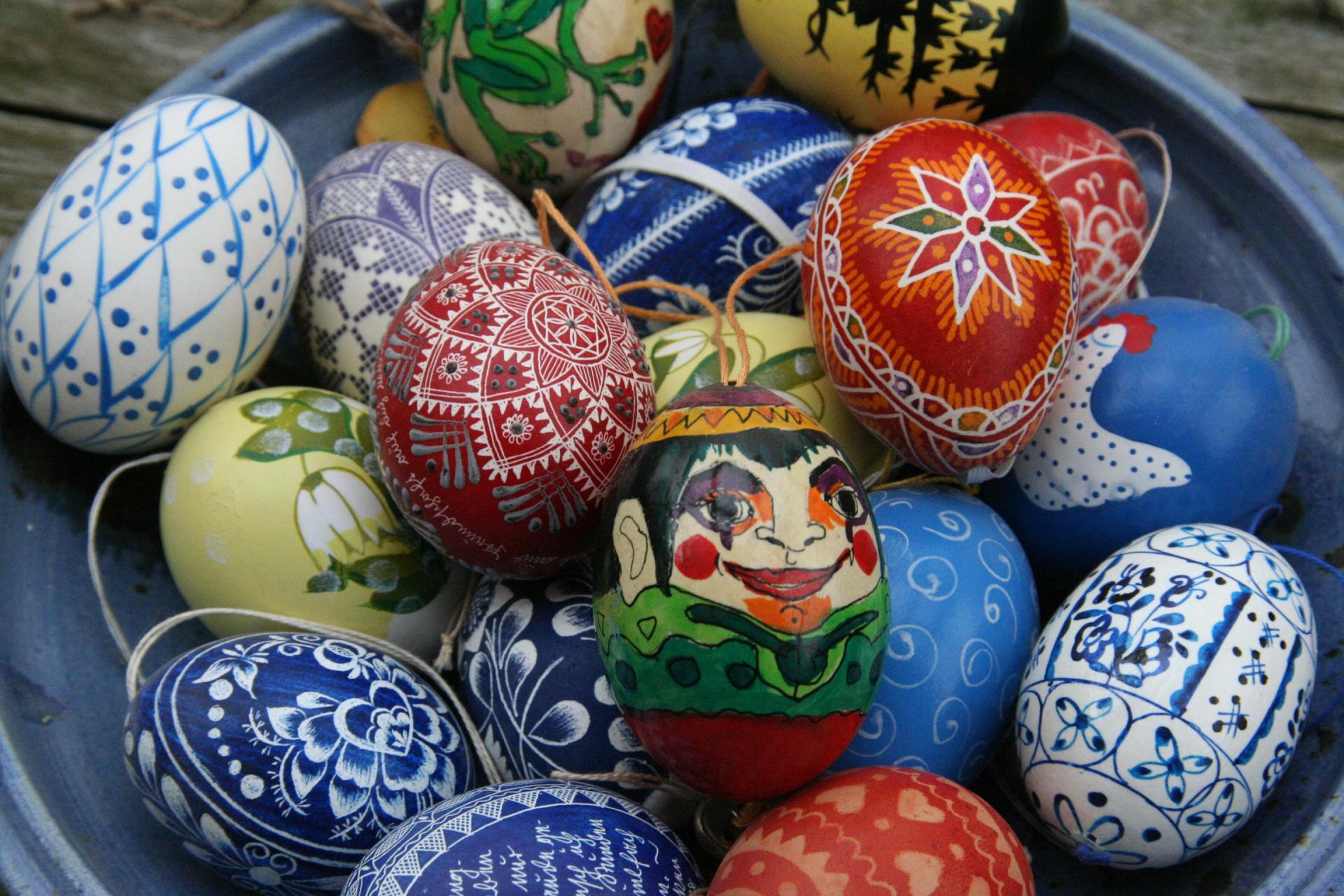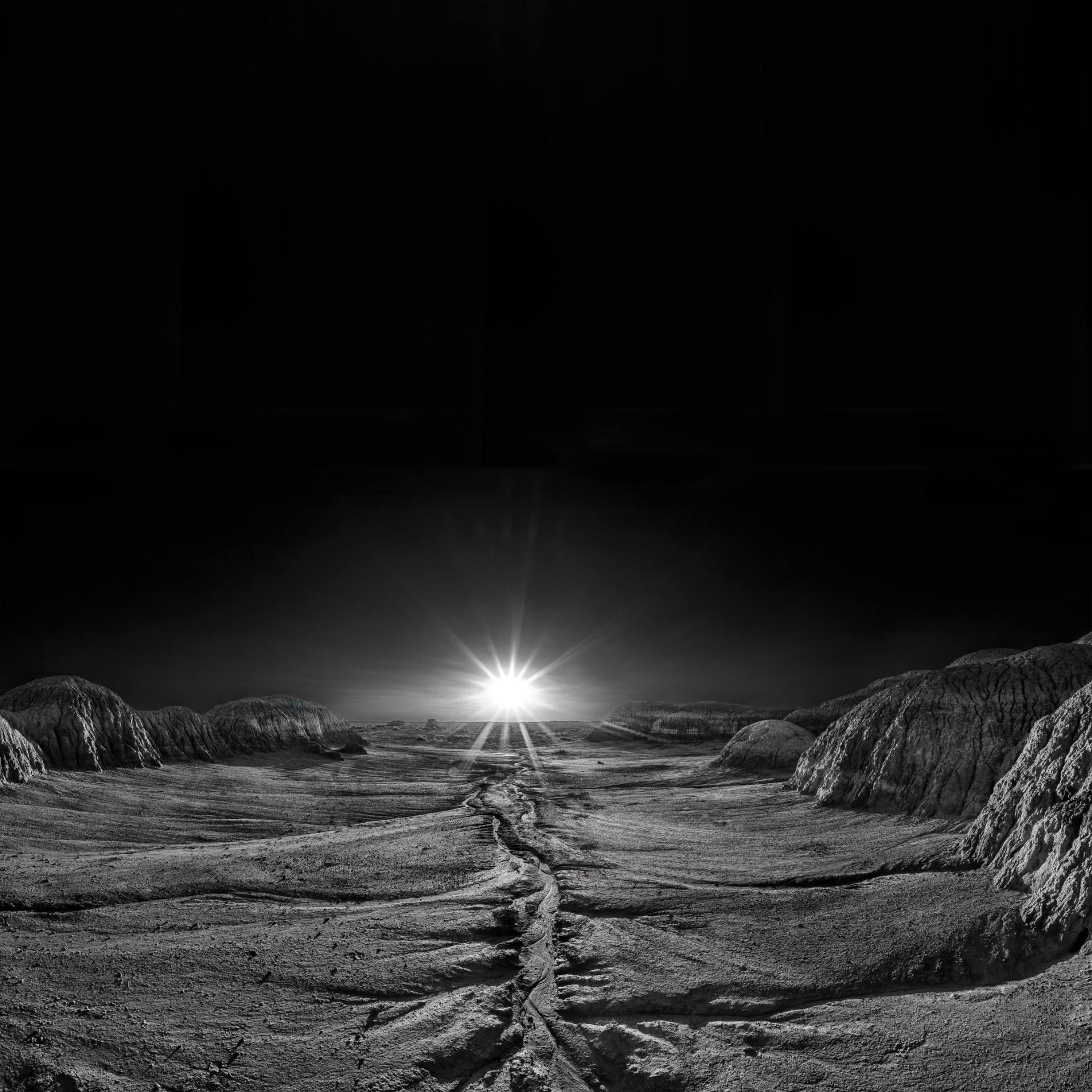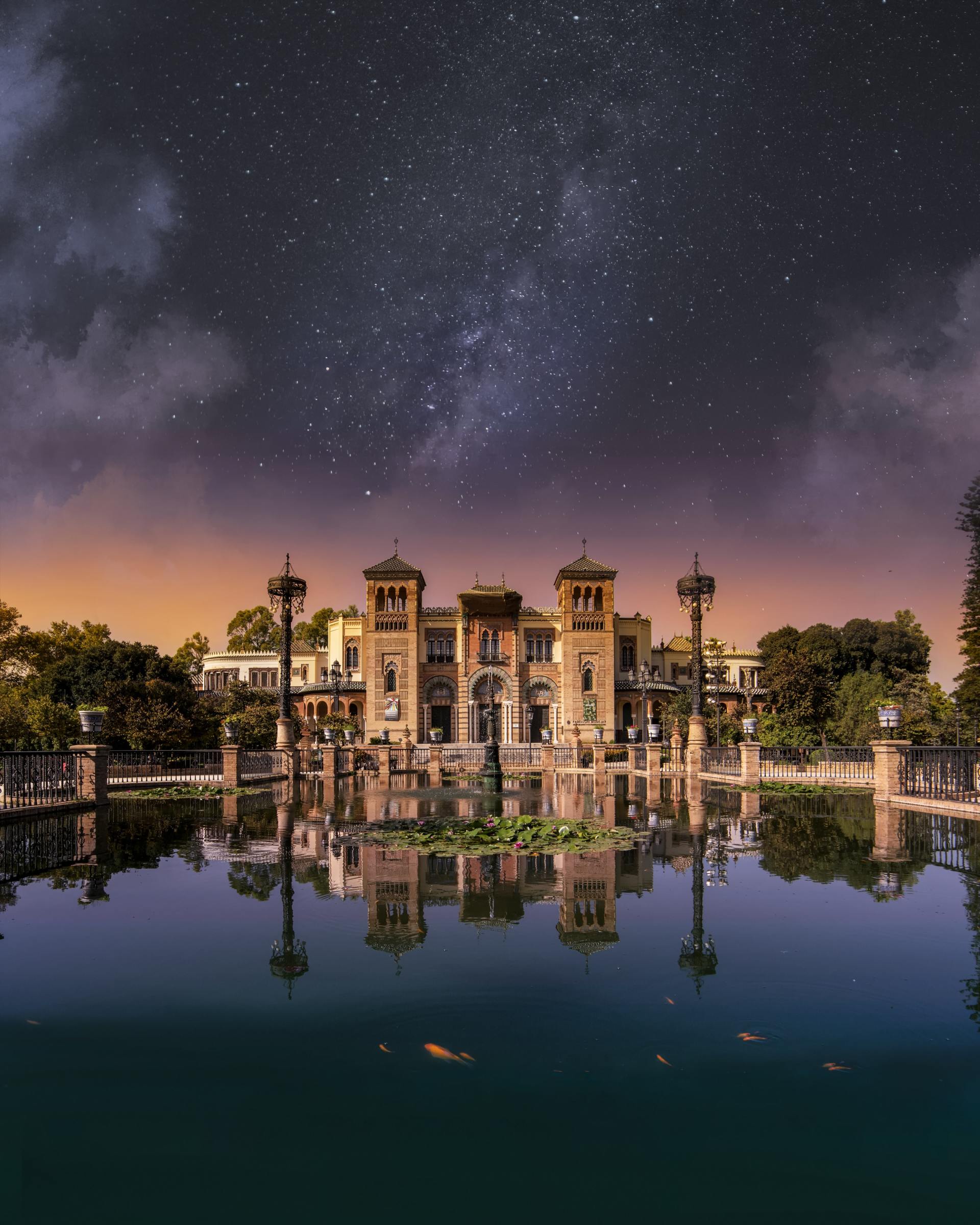The Lighthouse
The Lighthouse

By Mark Conroy
•
08 Jul, 2020
Celebrating the fourth of July got me asking the question what is true freedom? I have an appreciation for living in the United States and the freedoms we have and yet it doesn’t seem to lead to freedom and certainly not freedom for all. As I searched the scriptures, I kept coming back to John 8 which reminds us that the truth will “set you free” which made me think about all we have been learning in Genesis about trusting the story and finding rest in it. Some freedom’s will be found in the United States but it will never be complete as in the Kingdom of God where we can find the truth and ultimate freedom. Where will you find it? It’s all over the story of God right from the very beginning. God’s desire to make image bearers, partners of HIS plan using imperfect ordinary people who recognized (most of the time) that rest (freedom) came in God’s story, in HIS ways, in a relationship with HIM. We will not always understand but can always find strength in it. From the very beginning freedom was in a relationship with God but the world and our enemy Satan has been tugging at the seams to make us question that freedom, that rest. In every good story there is an ultimate hero and it is true in God’s story as well we are introduced to him in a manger, watch him as he sets people free from their sicknesses, diseases and even death in HIS ministry but the ultimate source of freedom came when he was willing to go to the cross as life faded away he uttered “It Is Finished” what was finished obviously his life here on earth but more importantly the power of death for those who would follow and believe HIM who would be willing to give up their very lives and follow HIM. It is only there that we can find true freedom and life to the full. And who is this HIM where true freedom is found Jesus, our Lord and Savior, our King. Romans 8:1 reminds us “there is NO CONDEMNATION for those who are in CHRIST JESUS…powerful, freeing, astonishing but often we forget it and that enemy of old still sows the seed of doubt that’s why Jesus said that “HE needed to go so the advocate could come”(John 16) the advocate is the Holy Spirit who is in each of us who have been baptized and follow HIM, even as imperfectly as our brothers and sisters from the past. Listen to these words about the Spirit, let it pour into your heart and mind: “Where the Spirit of the LORD is there is Freedom.”- 2 Cor 3:17. The only way to find freedom is through Jesus, will you be an Ambassador of truth and help people realize and find this freedom? Are you willing to be a daily encourager who will remind Jesus’s people of this truth of freedom? We need to remember our enemy is still there sowing those false seeds but you and I can sow true seed’s and watch God lead many to their rightful place at the feet of King Jesus and HIS Kingdom. Welcome to the truth that will set you free.

By Mark Conroy
•
01 Jul, 2020
As I was preparing for my sermon last week one of the things that caught my attention in the Sarai and Hagar story is that there are times in our lives when we want to take on the role of God. It would be easy to think badly of Sarai but then being honest with myself I can see times that I can have done the same thing. A quote by Bernie Siegel is “Doctors are busy playing God when so few of us have the qualifications and besides, the job is taken.” Bernie picks on doctors but I don’t think they are the only one biding for the job in the story of Sarai we see here trying to take on the role, it has been a few years since the promise that God intensified with Abram that his heir would in fact come directly from him there is no need for Lot or his servant Eliezer but still no child; “What is going on?”, “we aren’t getting any younger”, “never seen an 86 year old having a baby”, “what are we going to do?” Sarai is certainly not alone to in testing out the role and neither are the doctors, I am guilty of auditioning for God’s starring role as well. When I have an idea of how something or somebody needs to be fixed, when I don’t see something happening quick enough, when the stats or growth is not happening fast enough in me, my family, our church…oops there I go again it’s his church, his family, I am he am I really trusting what scripture tells me that God makes it grow? Love how the word can help us when we are having this desire both through individual scriptures as well as the stories that we read: Trust in the Lord with all your heart and lean not on your own understanding in all your ways submit to him, and he will make your paths straight. - Proverbs 3:5-6 In their heart’s humans plan their course, but the Lord establishes their steps. - Proverbs 16:9 The Lord is good to those who’s hope is in him, to the one who seeks him; It is good to wait quietly for the salvation of the Lord. – Lamentations 3:25-26 But do not forget this one thing, dear friends: With the Lord a day is like a thousand years and a thousand years is like a day. The Lord is not slow in keeping his promise, as some understand slowness. Instead he is patient with you, not wanting anyone to perish, but everyone to come to repentance- 2 Peter 3:8-9 I love that last sentence that God is patient with us if we want to take on a characteristic of God when we want to take on the role let us be patient as well and trust what our Father is doing. In many of the things that I have tried to take on the position of God it has turned out bad just as we see in the idea Sarai had but often even though the short term things maybe bad in the long term God can make it right after all he is sovereign something that we could never be even when we try to be in HIS role. Let’s trust in HIS story and find rest in HIM.

By Mark Conroy
•
24 Jun, 2020
As we are learning in our study of Genesis, God is always at work, even when we don’t expect it and that is true as we first encounter Melchizedek the king of Salem hidden in chapter 14 it is a little gem that will be cast on to Jesus in later years but could easily be glossed over. Melchizedek is shrouded in mystery we don’t know who his parents are or the lineage of his kingdom, we learn in Genesis 14 that he is not only a king but a Priest of God most high, it is here that we first see the word priest in the bible, we know that it will not be until years later that the Levitical priesthood would be established, these would be the priests who serve the Lord for the Israelites interesting enough we know Jesus was not a Levite more on that in a bit. Melchizedek pops on the scene after Abram has defeated Kedorlaomer and the kings allied with him with only 318 men. Melchizedek bring out bread and wine, blesses Abram and thanks God for delivering the enemies into the hands of Abram. Abram in turn gives ten percent of the plunder to the Priest Melchizedek. Lots of foreshadowing of things to come including a tithe of ten percent and communion but there is so much more to Mel then meets the eye at this moment. In a foreshadowing of the Messiah Psalm 110 once again mentioned the order of the priesthood of Melchizedek saying this will be the order that Jesus is from not a Levitical priest but a Priest of the God Most High. How cool is it that God is always doing things that we may never understand or that will only become more clear as time goes on and HE is ready to reveal it I believe that is as true today as it was that day when Abram was blessed by Melchizedek. It won’t be till after Jesus’s death that we will learn more about this Priest-King. The name Melchizedek means “king of righteousness” being the king of Salem would mean being the “king of peace”. Without genealogy (a father or mother) means no beginning or end he remains a priest forever. These next words are striking “Resembling the Son of God.” In Hebrews 6 we learn the Jesus is from the priestly order of Melchizedek (Hebrews 6:20) what we see here is the legitimacy of a non-levitical priesthood. I love that God leaves us easter eggs all throughout his story that at times things may not make sense but in the end it all becomes clear. Our Father can be a being of mystery but one thing is for sure HE is always trying to bring HIS creation home. That’s why we can TRUST in HIS story and Find REST in it. Keep your eyes open for the little hint’s he gives us throughout HIS story…The Bible

By Mark Conroy
•
10 Jun, 2020
As we begin to dig into the stories of Abraham a question that might be on your mind is why him? When we are first introduced to Noah the bible makes it clear that he was someone who God would like to partner with it tells us "Noah was a righteous man, blameless among the people of his time, and he walked faithfully with God”...with Abram it isn't spelled out. As Genesis 11 begins we see God confusing the language of the people creating misunderstandings and a scattering. God did that because they were attempting to make a name for themselves through this scattering a fragmented society is created one that can’t understand each other forming instead of a nation; individual families, tribes and small societies. As God prepares Abraham for the journey, they are about to embark on with each other God makes some promises to Abram- “I will make you into a great nation and I will bless you” “I will make your name great and you will be a blessing” wait a second wasn’t making their name great God’s main concern about the tower builders? What did God know about Abram that made HIM believe he could actually be a blessing to the nations and not fall into the traps of the garden, the vineyard, and the tower. The answer may be found in the genealogy at the end of Genesis 11 through it we can see glimpses of Abram’s character. We learn Abram is the son of Tera, brother to both Nahor and Haran. Haran has three kids a son Lot and two daughters Milkah and Iskah unfortunately Haran dies and leaves his kids without a father…Amazing as we look through the genealogy we see that Nahor takes Milkah as his wife, willing to take the responsibilityfor her giving Milkah hope and continuing the line of his brothers family line…Rabbinic teachings lean into the idea that the other daughter Iskah is actually Abram's wife Sarai. That as the older brother Abram could have chosen Milkah having the knowledge that Iskah was barren but chose Iskah because she needed love and care even though she could not produce an heir and continue Abram's name even if Sarai is not actually Iskah the same thought about Abram still holds true. Through the genealogy we see that Abram is not all about him and his name if he was, he never would have married Sarai or once he found she was barren would have quietly divorced her and married another. What God saw in Abram was that: He was all about family All about the other Willing to provide comfort and love with possibly no blessing in return Abram was willing to put his legacy in God’s hands, trust God’s story and find rest in HIM and that’s why God felt Abram would be a great partner for the creation of God's people, God's family... the Israelite people.

By Mark Conroy
•
02 Jun, 2020
After 40 days and 40 nights tossing between the waves Noah and his family finally begin to find hope as the rains cease however, it then takes another 150 days for the a the ark to finally rest on the mountains of the Ararat. Imagine what that was like, I think about these past few months when we were in the stay at home order long periods of time can lead to great times of thinking and reflecting, to give thanks each day. I imagine Noah and his family talking about the mercy and compassion that they see God has had on them the hope they had of how life could be different. I think of Noah reflecting on the name given to him by his Father Leech a name that said "He will comfort us in our labor and painful toil of our hands caused by the ground the Lord has cursed. When they finally landed would that new land be fruitful? Once they step foot on the new land God provides a new covenant to them one calling them to be fruitful an multiply, one that provides everything they will need to sustain themselves, God provides rules to live by including not to take human life or suffer the consequences and finally tells them that under this covenant HE would never destroy the earth by a flood. Gods sign for this covenant is a bow one that is pointed straight to heaven one that will remind both parties of this covenant. Once again the creator shows the love he has for the image bearer but once again fruit gets in the way. After planting a vineyard Noah drinks to much of the wine and becomes drunk and passes out in the tent Hams sees his father naked a connotation by Biblical commentators that are all over the place Noah is so angry at Ham for his actions that he curses him and we see the set up once again of the sin of the family. The sons of Noah’s descendants scattered over the whole earth and some will be the peoples and tribes that will cause havoc for the Israelites but not before they try to unite, build a tower and find a name for themselves. Once again the people lack trust in the story and look for rest in other things, man sometimes ground lands brings lots of problems the good news is we have a home in heaven.

By Mark Conroy
•
18 May, 2020
Why did God command Adam not to eat from the tree of the knowledge of good and evil? How would the fruit of the tree cause a drift in the relationship between creator and Image Bearer? As, we discovered yesterday the woman already possessed ideas of right and wrong. As she spoke with the serpent about the idea of eating the fruit of the tree of good and evil she refers to the command given to Adam, she is aware of the truth spoken by God that HIS people would not eat from it making it certain she already had some recognition of good and evil. When I first started looking at this story the first question that came to my mind was if God didn’t want them to eat from it why did he put it in the center of the garden?, Why did he make the fruit look so good? Isn’t that just cruel it would be like Maureen making my favorite meal spaghetti pie, sitting it in front of me and telling me that I couldn’t have a slice; now that would be mean. However, this isn’t what we have seen from the creator so far. HE made plants, animals, and the rivers for the important source of water. He created woman so that Adam would not be lonely and that through their relationship they could provide tension and levity to remember what they were created for this is not the work of Ogre. Is it possible that the command about that particular tree was to provide something else for our benefit maybe the opportunity to learn obedience which would further help us trust God and HIS story not only through the things he created for us but in the ways he would protect us with HIS words and commandments? As I was writing this I thought of the parable of the soil; the farmer (the creator) was sowing seed some fell on good soil but others were choked out is that what happens when we eat the fruit from the tree of knowledge of good and evil does it chock out the seeds of the creator? Instead of relying on HIS truths and commands it starts to compete with our own thoughts and desires, it competes with others thoughts and needs and all this has the possibility to push us away from HIS truth and rest just as it did to them. They became afraid not just of being naked but in disobeying God. There is nothing wrong with desires or wanting to please ourselves or others as long as we temper that with what we know of God’s story and for you and I Jesus’s we see first hand one who rested in God’s voice and trusted the story finding rest even on the cross. You see we face the same dilemma the woman did, it may not be about eating the fruit or not.. but it’s about trusting in the real source what God has said and done and trust in it more than the unknown…the first bite of that fruit. Lets help each other hold on to the truths of HIS story so we can find rest even in the waves.

By Mark Conroy
•
13 May, 2020
Think about all the things that form our opinions we get information in so many ways from the tv shows that we watch, the things that we read, our educations, our families, the country that we live, the churches we learn from and all this information is how we form our worldviews the things that make us do what we do. This is not only true for us but the people who came before even those people first called Isrealites. Imagine what it was like for them, once they were the people of God chosen by him to do his work here in this world but over the course of the last 400-450 years they have been slaves in a foriegn land learning about there culture and thoughts. Thier own lives judged upon the number of bricks they produced each day... This is how we find them as they begin the journey in the desert the stories thet had heard during that time was nothing like they knew prior to slavery the grand stories of Arbraham, Isaac and Jacob and the incedible God they had a relationship with had been replaced or at the very least confused with the Mesopotainan and Babylonian storeis the Egyptians tolds. In our to better understand those naratives I am going to share three stoires that would have been prevelent in the time for them. The Gilgamesh Epic The Gilgamesh Epic is one of the best known of the ancient Mesopotamian sources, known by everyone from schoolboys to kings. Gilgamesh was the king of Uruk (biblical Erech)—or was he? King Arthur, c. AD 500, and Robin Hood, c. AD 1100, may well have been historical individuals—around whom was wrapped the stuff of legend. Gilgamesh was supposedly two parts god, one part man. Yet he probably was an actual king (2800–2500 BC), even though copious legendary material has been rolled into the epic version of his life. After the king seizes his subjects’ sons for his army and lies with their virgin daughters in the practice of first night, they complain to the gods. The gods create Enkidu to confront Gilgamesh—in effect, Enkidu is a second Gilgamesh. He is a primitive man with shaggy hair, who drinks from the forest pools and is a friend of the animals—because he is an animal. Enkidu becomes “civilized” by having sex with a prostitute. He confronts Gilgamesh in Uruk; they grapple with each other, but Gilgamesh prevails—and they end up becoming close comrades. Soon the friends set out to locate and destroy the monster Humbaba—and succeed. Later, the goddess Ishtar (an insatiable sexual predator) makes an advance toward Gilgamesh, but he rebuffs her. In return, she sends the Bull of Heaven to kill Gilgamesh and Enkidu, but instead they kill the bull. One day Enkidu dies. “Six days and seven nights I mourned, until a worm crawled out of his nose.” Shamash, sun god and deity of retributive justice, says in effect, “You’re mortal. Get over it!” Deeply affected, Gilgamesh sets out to find wisdom and the secret of everlasting life. After all, the pleasures of life and glories of being a hero figure all end in darkness—in meaninglessness. The Mesopotamian underworld is a dreary place. Gilgamesh then sets out on a quest to find Utnapishtim, the only man to have received immortality from the gods. (Utnapishtim’s wife had also received this gift.) Gilgamesh is taken aback that Utnapishtim isn’t a hero like himself. Utnapishtim reveals a secret: a plant at the bottom of the abyss, that confers eternal life. Utnapishtim is also the Noah of the Mesopotamian flood story, having survived the deluge. He tells Gilgamesh of his survival on a large boat, along with his family and pairs of animals. The flood is not sent to provide the human race with a new beginning (as in Genesis). It was decreed by the chief gods in council: Anu, god of the firmament; Enlil, god of earth, wind, and air; Ennugi, the god of irrigation; Ninurta, god of war and wells; and Ea, the god of wisdom and crafts. Enlil orders a flood to destroy humankind, but Ea finds a way to tip off Utnapishtim by warning his house about the flood—in which Utnapishtim happens to be at the time. Let us return to the quest for immortality. Gilgamesh ties heavy stones to his feet and plunges into the bottom of the abyss. He finds the plant of which Utnapishtim spoke and retrieves it. Later, however, while he is napping, a snake steals the plant. Gilgamesh, now knowing that eternal life is no longer accessible to him, returns to Uruk. The epic concludes with Gilgamesh marveling at the city of Uruk, realizing that the only “afterlife” will consist of his reputation—his royal honor and legacy. After much weeping and further reflection, Gilgamesh makes peace with his status as a mortal, continues his reign, and makes the most of life. Yet the overall tone of this epic is pessimistic. In contrast, Genesis neither downplays human sinfulness nor offers saccharine solutions to existential problems. Rather, it emphasizes personal accountability and consequences (as opposed to life being dictated by the whims of the gods), seasoned with divine grace. The Atrahasis Epic An early Sumerian-Babylonian creation and flood story. The junior-level gods rebel after becoming frustrated with the work of digging canals, and a war between the gods ensues. Now the gods are no longer willing to carry out their backbreaking work. What to do? The problem is solved by the creation of humans. Seven original males and females are made from dust combined with the blood of a sacrificed god. The humans’ purpose? To take over the menial labors of the gods so that they may no longer be fatigued, but content. The story then moves on to the major characters: Anu, god of heaven; Enlil, god of earth; Enki, god of the underworld; and Atrahasis, a human king. Enlil, whose sleep has been disturbed by the noisy humans, seeks to drown them by means of a flood. Meanwhile, Enki (Ea of the Gilgamesh Epic) warns Atrahasis to build a boat in order to survive the calamity—not directly, but by allowing Atrahasis to overhear the news. It seems the cataclysm was a river flood . Atrahasis plays the same role as Utnapishtim, except that Atrahasis and his wife are already immortal. Of the three ancient accounts (in their various iterations through the centuries), the Atrahasis Epic has the most points of contact with the Bible (Gen 2–8). Enuma Elish The Babylonian creation myth Enuma Elish covers the sweep of history from the creation of the world—coming into existence as a result of battle between two gods, Marduk and Tiamat—to the construction of the temple of Marduk. Bill Arnold notes, “Both the Enuma Elish and the Ugaritic Baal Cycle close their creation accounts in cultic dramas, in the building of great temples, and in the case of Enuma Elish, specifically as a place of ‘rest.’ Likewise, in the Memphite theology of ancient Egypt, the god Ptah rested after creating everything.” In Enuma Elish, humankind was created to do the work the gods did not want to do themselves. Under King Hammurabi (1792–1750 BC), known for his famous law code, one of the earliest in all of history, Babylon had become the most powerful city in Mesopotamia—with Marduk being promoted to king of the gods. And so God guides them through the desert leading them through the desert as a pillar of clouds during the day and a pillar of fire at night rewiring that worldview and correcting it so that they could see clearly Elohim the real God the one true God who was not like the gods they had learn of in slavery but was THE GOD who desired a relationship with his creation and mostly HIS Image bearers. Just like them when we become Christians our worldview needs to be reshaped thats why that scripture that was God breathed help form them to be HIS people continue to also form us also. Let us be thankful for the Father who saw the need to give us the bible to strengthen HIS family then, now and forever.

By Mark Conroy
•
26 Mar, 2020
“Blessed are the peacemakers, for they will be called children of God”- Matt 5:9 Jesus was the ultimate peacemaker. He came into the world to show that we could live in peace with God by enacting the characteristic of a pure heart. As a peacemaker Jesus confronted the Pharisees, the leaders who were misleading, the Israelites, those who were being dishonest in the temple, the woman at the well, the people preparing to throw rocks at the adulterous woman. He did this with a pure heart, a desire that all people would follow God and His ways and he was willing to be the peacemaker all the way to the cross. The Gospel message was born through the cross when Jesus bore God’s wrath for our sins so we could have a right relationship with God. “Therefore since we have been declared righteous by faith, we have peace with God through our Lord Jesus Christ” . – Romans 5:1 You and I have been left here as ambassadors to share this message and to help be peacemakers helping people find their way back to the Father who loves them with all his heart. As peacemakers we will need to continually grow in: Getting rid of sin in our own lives- One of the greatest things we can do for others is by being an example of people who are willing to confess and repent. People need to hear that our lives aren’t perfect and have problems, but we trust in the Gospel to heal and bring us back to the Father’s love. We must be painfully honest- Both for ourselves and others. Many times, we see something in our lives or someone else’s that concerns us or doesn’t seem Christ like but we don’t want to confront it because we might cause them pain or lose their friendship. But we must ask ourselves what is better for us and them, comfort in this life or the hope that is offered in eternal life? We must be willing to risk pain- Anytime we confront sin and help restore people to God we risk being misunderstood, disliked, maybe even hated but we must remember and be reminded what Proverbs 27:5-6 reminds us “Better is open rebuke than love that is concealed. Faithful are the wounds of a friend, but deceitful are the kisses of the enemy.” We must develop healthy communication skills-James 1:19 reminds us of this “Understand this, my dear brothers and sisters! Let every person be quick to listen, slow to speak, slow to anger.” I love this direction especially when we see the actions of Jesus as he comforts people's sin. Think about the woman at the well. Jesus asked questions, he had tact in his answers and he didn’t get angry…the only time you see Jesus angry was when he was in the temple dealing with those who were desecrating HIS Fathers house. Most of the time he Listened, tactfully answered and was slow to anger. This is affective as a peacemaker. Heed the words of Proverbs 17:27 “The truly wise person restrains his words, and the one who stays calm is discerning.” We must trust God-remember we cannot create peace, only God can do that. We can say the right things, in the right ways, use the right scriptures and then we must trust God to do the heavy lifting, “The Lord’s servant must not be quarrelsome but must be kind to everyone, able to teach, not resentful. Opponents must be gently instructed in the hope that God will grant them repentance leading them to the knowledge of truth”.- 2 Tim 2:24-25 May we love one another, those who are still lost and our God and be willing to be peacemakers that make a difference for God and HIS people.
